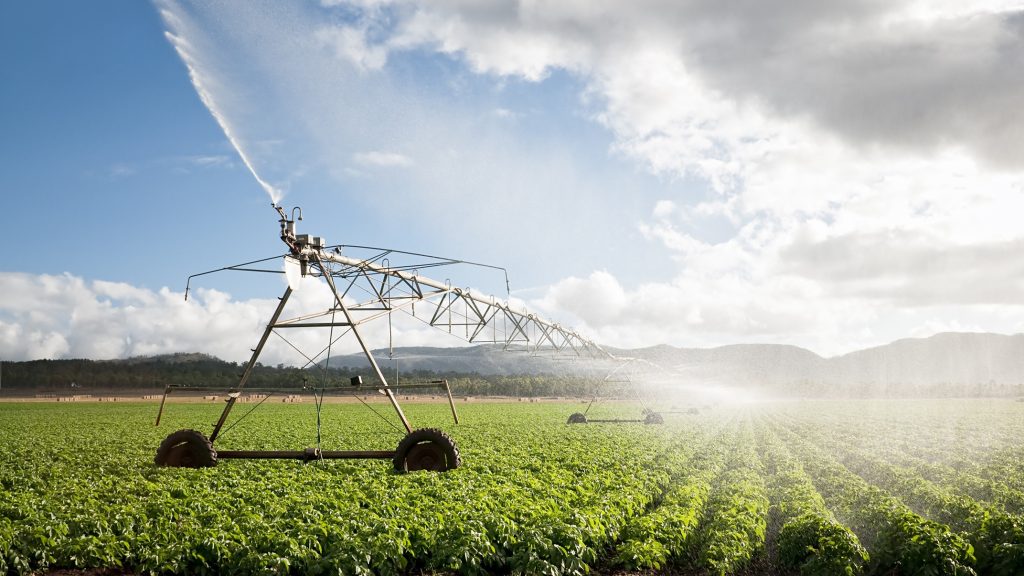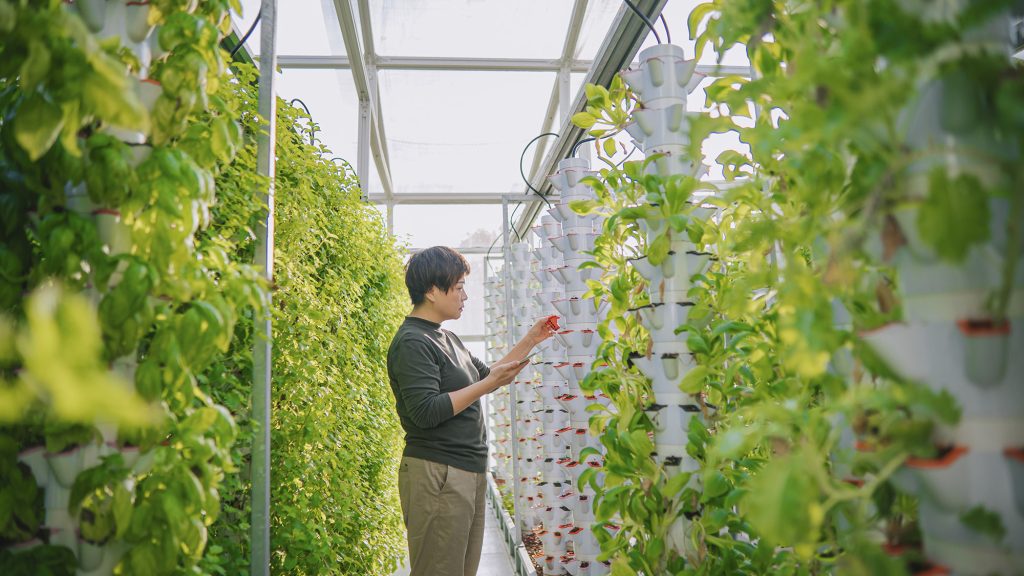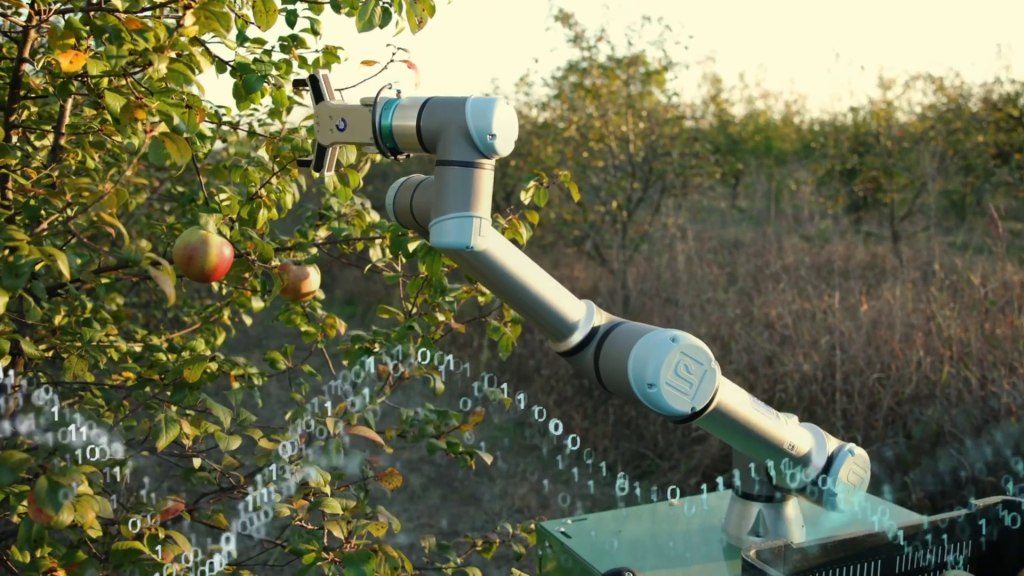Why agribusiness leaders are competing with tech giants for skilled workers

The agricultural industry has encountered many challenges in the past few years, but it may be facing one of its biggest threats to date: a talent desert. As with most sectors, farming has become more digitised. Agricultural drones and sensors paired with artificial intelligence (AI), machine learning, and Internet of Things (IoT), for example, offer real-time data rich with insights to help businesses better care for their crops and livestock.
But these new technologies require specialists on staff who understand this technology and can interpret the results. And these same automation experts, systems engineers, and data scientists are in great demand by Silicon Valley and the global tech giants of the world.
So, how are agricultural companies to compete?
The skills revolution transforming agriculture
Many experts believe we're entering what's called the fourth agricultural revolution, or Agriculture 4.0. Innovations like remote sensing platforms, GPS-guided precision equipment, drone-steered crop surveillance, robotics, and AI-powered machinery are being adopted in all areas of farming and yielding a fresh crop of data of their own. The IDC states that "the average farmer generates 500,000 data points every day" relating to the health of crops or the composition of soil. This vast amount of information requires the attention of a trained professional.
The acceptance of new technology will only continue to expand. One report says that more than 60% of surveyed large-scale farmers were already using or planning to use advanced techniques like yield monitoring. This means that a traditional farm will need to embrace digital skills in today's world if it wants to survive and thrive.
Farm hands and data scientists
Agriculture 4.0 could significantly change the makeup of the current workforce. Now, a professional with an advanced degree could stand alongside the archetypal weathered farmhand and talk about agronomy, analytics, environmental engineering, or robotics.
Some of the key roles that farmers may need to fill include:
-
Agricultural technologists: to deploy smart farming software and manage IoT devices
-
Artificial intelligence and machine learning engineers: to handle tools that help with pest detection or crop yields
-
Data analysts: to scour and interpret field and machinery data and draw up actionable insights
-
Drone operators: to map out fields, monitor the health of plants, and apply treatment protocols if necessary
-
Sustainability officers: to observe long-term environmental impacts and ensure responsible guardrails on innovation are in place
Naming the talent is one thing, of course — finding experts for your business is another. Skilled candidates are often drawn to other, more attractive sectors. And the farming industry itself is still riddled with stereotypes, tarnishing its perception among job seekers.
AG America says that the American farm labour force has shrunk by almost 75% in the past 70 years, due to advances in efficiency and market forces. And the USDA's Economic Research Service notes that there's been a significant drop in the number of hired farm workers, even though wages may have gone up significantly over the past 10 years.
Fewer young people choose agriculture as a long-term career, which may explain the fact that the average US farmer is older than 58. So, it's not surprising that we see a widening gap between the digital ambitions of today's farmer and the available, willing candidates who can actually help them out.
Actionable strategies for agribusiness leaders
While there may be many headwinds, mid-market agricultural companies aren't powerless. With strategic leadership, you could turn this talent war into a competitive advantage. Here are some tips:
Rebrand
Don't market your organisation as simply a farm. Position it as a sustainability leader or an agri-tech innovator. Emphasise how you can positively impact the climate and be an ethical steward of the land, while contributing to overall food security. Remember: Today's workforce wants purpose — not just a paycheck.
Invest in training
Consider a training partnership with an agricultural university or local technical college. Offer on-the-job learning, apprenticeships, or short-term certifications to cultivate local talent.
Modernise your benefit structure
Flexibility is key. Even though remote work is typically not viable, hybrid work may be a option for your business. Think about providing other benefits like mental health support or personal development allowances to make a career in agriculture more enticing.
Consider fractional or freelance roles
You may not always need to employ a full-time or on-site expert. Bring in a specialist only when you need them, and avoid some of the costs associated with full-time employment.
Work on those pipelines now
Build relationships with educators and career advisors so they embed agriculture into their conversations with the workforce of tomorrow.
Embrace collaboration rather than competition
Instead of working in a silo, reach out to farms in the community to form joint ventures or shared talent pools. This can help to spread out recruitment costs and may also give candidates much greater choice.
Future-proof your workforce with HLB
There's a lot at stake: The success of your growing agribusiness could hinge on your ability to attract and retain tech professionals. But you don't have to face this challenge alone. At HLB, we have considerable expertise in this sector, and we also conduct an annual survey of business leaders of business leaders to gather even more insight.
When you work with us, we'll create a tailored strategy and offer ongoing consulting to identify where your gaps are, the type of talent that you need, and what to do next. In other words, we’ll help you to compete effectively in what is, for many, a new and unusual landscape.
Get in touch today to learn how HLB can help you with your all-important tech talent strategy, so you can stay well ahead of the game.
Related content






